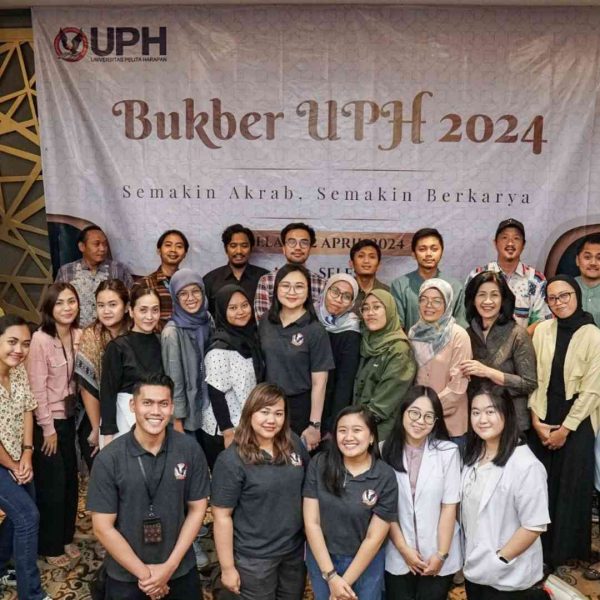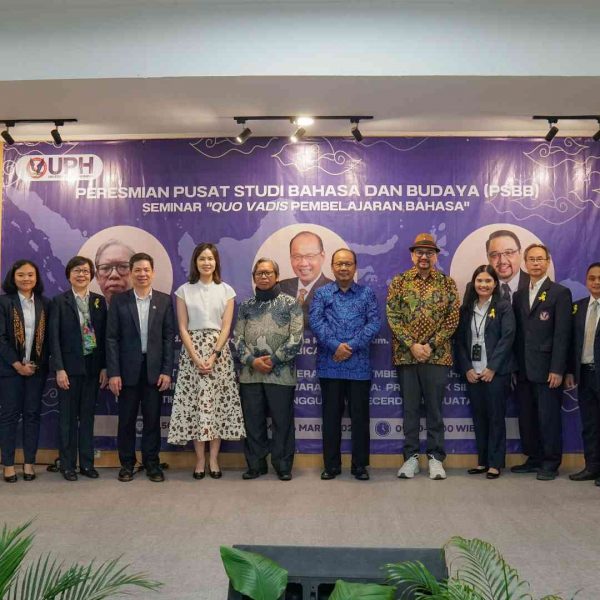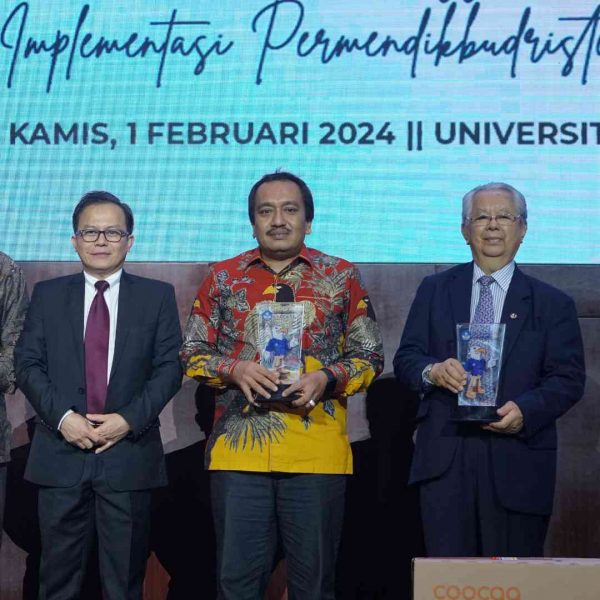2020
UPH has Contributed to 290 Researches Through Research Grant in 2019.

Last year was a busy year for the lecturers in Universitas Pelita Harapan (UPH). In the midst of their teaching activities, they managed to create 145 research proposals and 125 Community Service proposals which were funded by UPH with a total of 2 billion rupiahs grant. Moreover, there were about 19 research projects that received a grant from the Ministry of Research, Technology, and Higher Education (KEMENRISTEKDIKTI) and one research project funded by LPDP Rispro (The Funding Management Institute for Productive Innovative Research Education Grant) with a total of 3,4 billion rupiahs external grant.
Dr. -Ing. Ihan Martoyo, ST., MSc., MTS., as the Head of UPH Research and Community Service Institute (LPPH) also stated that one of the research projects granted by the Ministry of Research and Technology has entered the category of World-Class Research. This research was done by Dr. Marincan Pardede (Electrical Engineering), with the title: “Singlet-Triplet Emission Study on Laser-induced He Gas Plasma to Improve Elements Detection Performance with LIBS.”
The 19 research projects of UPH that were granted by the Ministry of Research and Technology covers lecturers from various faculties including the Faculty of Medicine, Faculty of Law, Faculty of Hospitality and Tourism, Faculty of Psychology, Faculty of Social and Political Sciences, Faculty of Science and Technology, and the Faculty of Computer Science. One of the researches granted by LPDP Rispro, one with advanced technological readiness and aimed for product commercialization, involves a lecturer from the School of Design (SoD). This LPDP Rispro research develops art-crafts made from bamboo combined with batik, in partnership with bamboo craftsmen in Yogyakarta and Japan.
The Faculty of Computer Science (SISTech UPH) also did research granted by the Ministry of Research and Technology which talked about the technologies in 4.0 Industry including the Internet of Things, Machine Learning, Big Data dan its application in the medical field. Some of these technologies are applied in the face recognition system for students, disability services, fish location optimization, video recording during cataract surgery, and the development of a smart-healthy campus.
Aside from that, the Faculty of Science and Technology (FaST) UPH also shows many creative ideas and methods for their research grant. The Electrical Engineering department did research about material detection using laser and plasma, the Civil Engineering department in collaboration with the Biology department did a research on the improvement of soil quality using indigenous bacteria, and the Food Technology department did a research on the fermentation of red gnetum skin as antihyperuricemia.
One interesting research came from the Faculty of Psychology which talked about the religious and spiritual struggles faced by students in Jabodetabek. Some of the papers, which have been presented in international seminars and are currently being reviewed to enter an international journal, show that in general religiosity can enhance student’s subjective well-being, but it could also cause stress and struggle in certain dimensions. This research also shows that there is no statistical proof showing the difference between the religiosity of Christian female and male students. On the other hand, there is a statistical difference between the religiosity between Moslem male students, in which it is higher, and Moslem female students.
One of the researches done by the Faculty of Medicine (FK UPH) within the National Innovation System Research Incentive Program scheme (Insinas), which was funded by the Ministry of Research and Technology, studied about the relation between aggressiveness, temperament, and psychopathology through the imaging of dopamine in the brain of a young adult with online games addiction. This impressive research was done in collaboration with the Faculty of Medicine of Universitas Indonesia. In addition to that, FK UPH also did a serology and molecular study of the Dengue virus infection for the application of the Dengvaxia vaccine.
Another engaging research came from the Faculty of Social and Political Sciences (FISIP) about the development of web-comics as media to learn about political attitudes through social media. The Faculty of Hospitality and Tourism also took the chance to do research and decided to write about a mental revolution in the administration of tourist destinations.
From this point forward, UPH will always encourage the active role of lecturers to produce even more engaging researches in 2020.



